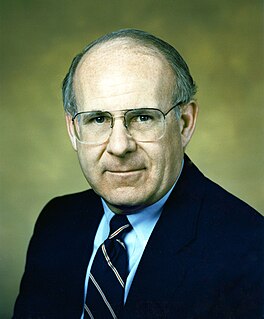Related Research Articles

The Tulane University School of Medicine is located in New Orleans, Louisiana, United States and is a part of Tulane University. The school is located in the Medical District of the New Orleans Central Business District.

Passive smoking is the inhalation of tobacco smoke, called secondhand smoke (SHS), or environmental tobacco smoke (ETS), by persons other than the intended "active" smoker. It occurs when tobacco smoke enters an environment, causing its inhalation by people within that environment. Exposure to secondhand tobacco smoke causes disease, disability, and death. The health risks of secondhand smoke are a matter of scientific consensus. These risks have been a major motivation for smoke-free laws in workplaces and indoor public places, including restaurants, bars and night clubs, as well as some open public spaces.

The Harvard T.H. Chan School of Public Health is the public health school of Harvard University, located in the Longwood Medical Area of Boston, Massachusetts. The school grew out of the Harvard-MIT School for Health Officers, the nation's first graduate training program in population health, which was founded in 1913 and then became the Harvard School of Public Health in 1922.

Shahid Beheshti University of Medical Sciences is one of the three medical universities in Tehran, the capital of Iran. It began in 1961 with the establishment of the Schools of Medicine and Dentistry. Following the merging of some of the treatment and educational units and organizations affiliated to the then Ministry of Health and “Melli University” in 1986, Shahid Beheshti University of Medical Sciences began its activities independently.

Tobacco use has predominantly negative effects on human health and concern about health effects of tobacco has a long history. Research has focused primarily on cigarette smoking.

Devra Lee Davis is an American epidemiologist, toxicologist, and author of three books about environmental hazards. She was founding director of the Center for Environmental Oncology at the University of Pittsburgh Cancer Institute, and is a former professor of epidemiology at University of Pittsburgh Graduate School of Public Health. She has served on several governmental and non-governmental organizations, conducting research and advocacy into effects of pesticides, asbestos, and wireless radiation on human health, especially cancers.
Ernst Ludwig Wynder was an American epidemiology and public health researcher who studied the health effects of smoking tobacco. His and Evarts Ambrose Graham's joint publication of "Tobacco Smoking as a Possible Etiologic Factor in Bronchiogenic Carcinoma: A Study of 684 Proved Cases" appeared in the Journal of the American Medical Association. It was one of the first major scientific publications to identify smoking as a contributory cause of lung cancer.

The Tulane School of Public Health and Tropical Medicine is part of Tulane University, located in New Orleans, in the U.S. state of Louisiana.

Joseph W. Cullen was an American cancer prevention and rehabilitation researcher and briefly director of the AMC Cancer Research Center (1989-1990). He previously worked at the VA Hospital in Maryland (1968-1973), the National Institutes of Health (1973), the National Cancer Institute (NCI), and the Jonsson Comprehensive Cancer Center (1976-1982), holding high-level positions such as division director at several. He was a coordinator, creator, and researcher for the Smoking Tobacco and Cancer Program at the NCI, the largest anti-smoking campaign in the world at that time. Cullen wrote more than 90 publications in his lifetime, including four books.

Dimitrios Trichopoulos, was a Mediterranean Diet expert and tobacco harms researcher. He was Vincent L. Gregory Professor of Cancer Prevention and Professor of Epidemiology, and a past chair of the Department of Epidemiology, in the Harvard School of Public Health in Boston.
Geoffrey C. Kabat is an American epidemiologist, cancer researcher, and author. He has been on the faculty of the Albert Einstein College of Medicine and State University of New York, Stony Brook. He is mainly known for the discredited BMJ study funded by the tobacco industry, that failed to find an association between secondhand smoke and health problems. He has consistently disputed the health risks of second-hand smoke by casting doubt on the scientific consensus that secondhand smoke causes lung cancer, which is estimated to cause about 21400 deaths per year worldwide.
Paul Kieran Whelton is an Irish-born American physician and scientist who has contributed to the fields of hypertension and kidney disease epidemiology. He also mentored several public health leaders including the deans of the schools of public health at Johns Hopkins and Columbia. He currently serves as the Show Chwan Health Care System Endowed Chair in Global Public Health and a Clinical Professor in the Department of Epidemiology at the Tulane University School of Public Health and Tropical Medicine. He is the founding director of the Welch Center for Prevention, Epidemiology, and Clinical Research at Johns Hopkins University.
Takeshi Hirayama was a Japanese cancer epidemiologist and anti-tobacco activist who served as the chief of the epidemiology division at the National Cancer Center in Tokyo from 1965 until 1985. He has been credited with publishing the first study linking passive smoking to lung cancer, and also conducted research on the relationship between certain dietary factors and cancer.
Pelayo Correa is a Colombian pathologist.
Cornelia "Neli" Ulrich is executive director of the Comprehensive Cancer Center at Huntsman Cancer Institute (HCI), Jon M. and Karen Huntsman Presidential Professor in Cancer Research, and former Division Chief of Cancer Population Sciences in the Department of Population Health Sciences at the University of Utah. Ulrich oversees HCI's academic consortium of nearly 200 cancer research teams. She leads efforts to advance the impact of HCI's research in laboratory, clinical and population science, with the goal of improving cancer prevention and treatment. Prior to joining HCI, she was the director and department head of preventive oncology at the National Center of Tumor Diseases (NCT) and German Cancer Research Center (DKFZ) in Heidelberg. During this time, she also held a Professorship at the DKFZ and University of Heidelberg. From 1993 until 2009, Ulrich was a Member of the Fred Hutchinson Cancer Research Center and Professor in Epidemiology at the University of Washington in Seattle.

Kirsten Bibbins-Domingo is an American epidemiologist and physician. She is the 17th Editor in Chief of the Journal of the American Medical Association (JAMA) and the JAMA Network. She is Professor of Epidemiology and Biostatistics and the Lee Goldman, MD Endowed Professor of Medicine at University of California, San Francisco. She is a general internist and attending physician at San Francisco General Hospital.
Cheryl Ann Marie Anderson is an American epidemiologist. Anderson is a professor at and founding Dean of the University of California San Diego Herbert Wertheim School of Public Health and Human Longevity Science. Anderson's research focus is on nutrition and chronic disease prevention in under-served human populations.
Xifeng Wu is a Chinese-American cancer epidemiologist known for her cohort studies designed to discover the causes of cancer. She has been Dean of the School of Public Health of Zhejiang University since March 2019. She previously served as Director of the Center for Public Health and Translational Genomics and the Betty B. Marcus Chair in Cancer Prevention at the University of Texas MD Anderson Cancer Center until she was forced to resign in January 2019, as part of the Trump administration's push to counter Chinese influence in American research according to Bloomberg Businessweek.

Joan Ellen Bailey-Wilson is an American statistical geneticist. She is a senior investigator and co-chief of the Computational and Statistical Genomic Branch of the National Human Genome Research Institute.

Lucile L. Adams-Campbell is the first African-American woman to receive a PhD in epidemiology in the United States. She serves as the Professor of Oncology at Lombardi Comprehensive Cancer Center and Associate Director for Minority Health at the Georgetown University Medical Center. She is a Fellow of the National Academy of Medicine and the Washington DC Hall of Fame.
References
- 1 2 3 Pope, John (20 November 2008). "LSU Dean Elizabeth Fontham named head of American Cancer Society". NOLA.com. Retrieved 6 March 2016.
- ↑ "Elizabeth Fontham". LSU Health Sciences Center New Orleans. Retrieved 6 March 2016.
- ↑ "Announcement of Dr. Culbertson becoming dean" (PDF). LSU Health Sciences Center School of Public Health. Archived from the original (PDF) on 10 March 2016. Retrieved 6 March 2016.
- ↑ "Elizabeth Fontham". IPRI website. Retrieved 6 March 2016.
- ↑ "Elizabeth Fontham CV" (PDF). LSU website. Retrieved 6 March 2016.
- ↑ Fontham, Elizabeth T. H. (8 June 1994). "Environmental Tobacco Smoke and Lung Cancer in Nonsmoking Women". JAMA. 271 (22): 1752–9. doi:10.1001/jama.1994.03510460044031. PMID 8196118.
- ↑ Levin, Myron (4 October 1999). "Big Tobacco Pursues Secondhand Smoke Data". Los Angeles Times. Retrieved 6 March 2016.
- ↑ "Elizabeth Fontham". Louisiana Public Square. Retrieved 6 March 2016.